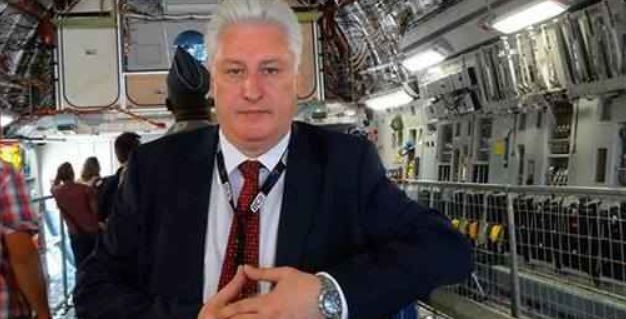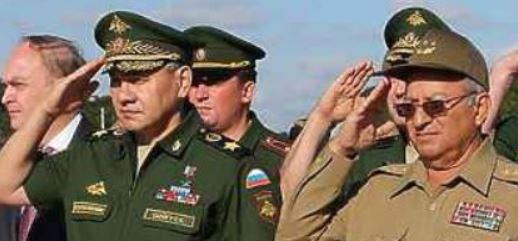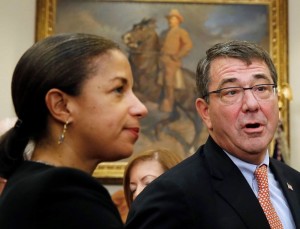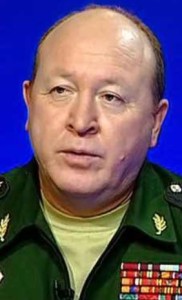
Russian expert dismisses rumors of a Guantánamo turnover
Russia does not need a permanent naval base in Cuba, says a Russian military expert, quashing insinuations that Cuba would turn the U.S. Navy base at Guantánamo Bay to Russia after the Pentagon vacates it.
“We do not need the base at Guantánamo — that accursed place with a bad reputation — and Havana should seek its definitive closure and reconversion,” said Igor Yurevich Korotchenko (in photo at top), editor of the magazine “National Defense,” the journal of the Russian Defense Ministry.
 “However, in my opinion, the Americans will not close that base in the foreseeable future,” he added, in a interview with RIA-Novosti.
“However, in my opinion, the Americans will not close that base in the foreseeable future,” he added, in a interview with RIA-Novosti.
Rumors were fanned last week by anti-Castro activists in South Florida that Cuba plans to turn over the base to the Russian Navy after the U.S. Navy relinquishes it, whenever that might be. That would be too much of a good thing, Korotchenko seemed to tell the news agency.
“When it comes to our military interests in Cuba, [the island] is unquestionably a useful place for Russian Navy warships and nuclear submarines on duty in the Western hemisphere to dock for rest, crew changes, water and fuel replenishment and maintenance,” the expert said.
The same applied to long-range missions by Russian military aircraft, he said.
However, “it is important to note that Russia does not need a full-fledged military base in Cuba. The issue is only about places for logistical support. We need such capabilities, based on the need to ensure military-political stability in the region and provide friendly support to the Cuban Armed Forces.”
“As to reaching concrete agreements, that’s the sovereign right of the Russian Federation and the Republic of Cuba,” added the magazine editor, who is also a member of the Defense Ministry’s public council. A retired Army colonel, his views often coincide with those of the Putin administration.

After the visit to Cuba, Venezuela and Nicaragua by Russian Defense Minister Sergei K. Shoigu in mid-February, Korotchenko told the news agency Tass that “from a practical point of view, it is clear that Russia will expand its military presence and combat missions in the western hemisphere.”
On that occasion, agreements were reached in all three capitals for the expeditious welcome and resupply of Russian ships on duty in international waters.

Cuba, Venezuela and Nicaragua “have been our traditional partners in Latin America, so it behooves us to maintain and develop relations with them,” Korotchenko told Tass at the time.
On July 1, U.S. Defense Secretary Ash Carter said that, despite the resumption of diplomatic relations with Cuba, the United States had “no anticipation and no plan with respect to the Guantanamo Bay naval station in Cuba.”
At a news conference in Washington on Monday (July 20), Cuban Foreign Minister Bruno Rodríguez Parrilla said that “the return of the illegally occupied territory of Guantánamo” was one of the conditions “crucial to be able to move towards the normalization of relations.”
Secretary of State John Kerry, who was also at the news conference, responded that “at this time, there is no discussion and no intention on our part at this moment to alter the existing lease treaty or other arrangements with respect to the naval station, but we understand that Cuba has strong feelings about it and I can’t tell you what the future will bring, but for the moment that is not part of the discussion on our side.”
At the White House on Wednesday (July 22), National Security Advisor Susan Rice told newsmen that “we’re not, at this stage, at all interested in changing the nature of our understanding and arrangements on Guantánamo. They may choose to raise it, but we’ve been equally clear that, for us, that’s not in the offing at the present.”
WILL CUBA DEFUSE MINES OUTSIDE GITMO?

The Russian news agency RIA-Novosti released a brief item on Saturday (July 25) that said that the Cuban and Venezuelan armies have “shown interest” in sending their sappers to the Russian Army’s International Anti-land-mine Center outside Moscow for training.
RIA-Novosti quotes Lieut. Gen. Yuri Mikhailovich Stavitskiy, head of the Army’s Corps of Engineers, as saying that sappers from Venezuela will begin taking courses in February 2016. He did not say when the Cuban sappers would begin classes.
Created in 2013, the Center instructs foreign demolition experts in the deactivation of landmines and improvised explosive devices.
Until 1999, the largest minefield in the western hemisphere lay on both sides of the fence separating the U.S. Navy base at Guantánamo Bay from the rest of that province. The U.S. removed its anti-personnel mines in 1999; there’s no evidence that Cuba did likewise.
General Stavitskiy’s disclosure raises the possibility that Cuba plans to clear its minefield in the expectation that the U.S. will eventually vacate the naval base.


